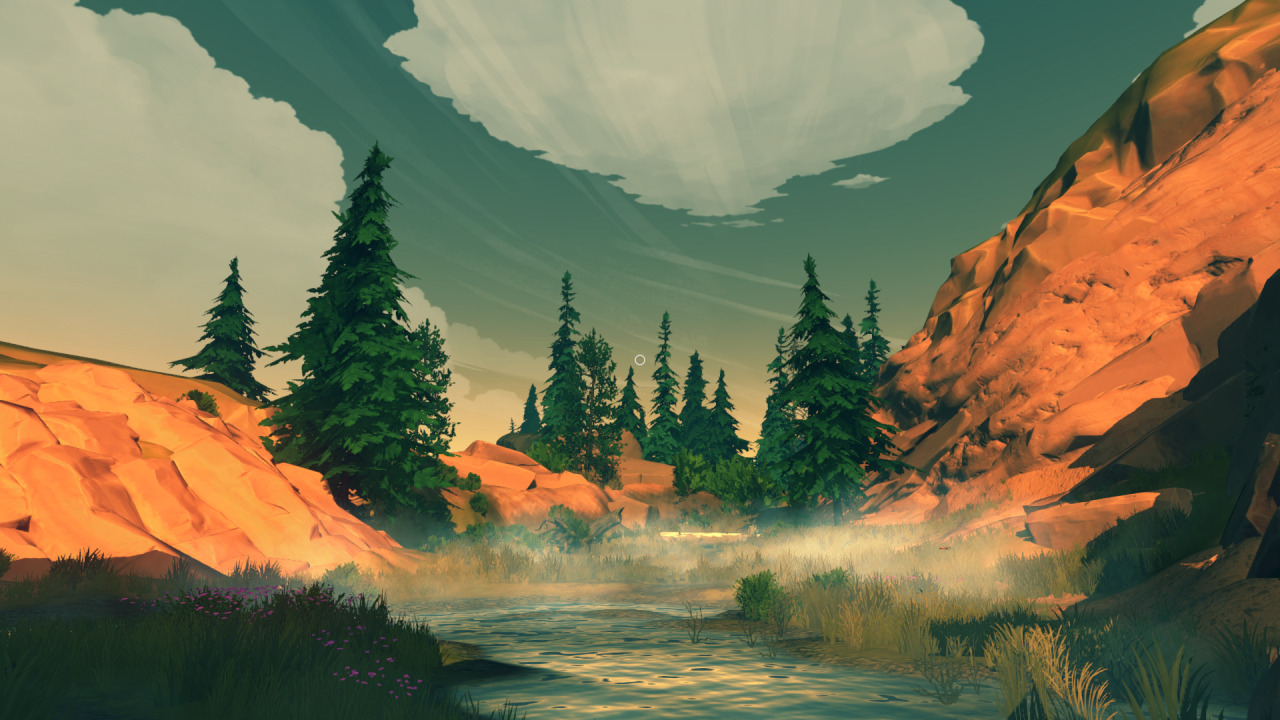

Shoshone isn’t THE world, but it’s a nearly-magical substitute, carefully honed and crafted to validate at every turn.īut none of this has to do with the world back home, and in an instant, life simply feels…normal again. A fire burns brightly in the distance against a night sky as you and Delilah share intimate words. Then there’s the environment itself: a gorgeously-rendered art form, the sights and sounds of Shoshone mold to your experiences: the sun goes down as the action slows, while the soundtrack remains silent when you need to pensively appreciate nature and runs cold when you’re meant to feel threatened or scared. The world scratches game-player itches as you find new tools to explore previously-inaccessible portions of the map and gain additional backstory by discovering items spread around the forest. Over the course of Firewatch you get to play detective, uncover information about the girls and their disappearance and the fenced-in area of the park, and deepen your relationship with Delilah. That might be why Firewatch’s ending, regardless of your satisfaction with it, feels inherently uncomfortable: though it concludes the story, it doesn’t actually resolve anything.Ĭampo Santo plays on our conditioning as gamers by provides us with all the signals that we’re “winning the game,”. Games of all kinds often play to this same compulsion: beat the boss, find the treasure, whatever, and everything becomes right with the world. Most stories resolve when the mystery is solved: the “whodunit” holds the key, and catching the crook restores balance to the world. These mysteries become the core of the story in Firewatch, and I found myself roped in: nervous, scared, and yet too curious to turn back, I kept pulling the thread as the plot unraveled. Eventually, mysteries unfold: two girls go missing after you see them at the lake, and an ominous, fenced-off portion of the park hides ominous, fenced-off secrets. Right?įirewatch is interactive fiction: you take on the role of Henry as you explore the Shoshone forest, perform lookout tasks, and converse with Delilah. A quick, low-intensity “vacation” of sorts would be just the thing to provide perspective. Armed with a typewriter and mementos of home, maybe he fancies he’ll write his way to truth and clarity (as many of us writers do). Perhaps this is the way he wants it, the wilderness gives him a way to escape his life back in Boulder. His one point of contact over the course of the summer is Delilah, his supervisor, via handheld radio. Henry takes a job as a fire lookout in Shoshone National Forest, a secluded wilderness in Wyoming.

In Firewatch, the year is 1989: it’s a world without smartphones, tablets, or Wi-Fi hotspots. And sometimes when we come back to an old problem, we find we’re no closer to the solution regardless of the skills we gained elsewhere. Some problems can’t be conquered simply by bootstrap-powered diligence. We may spend weeks, months, years cultivating skills that push us nowhere closer to our dreams. “Grinding,” a gaming term for performing repetitive tasks like killing weak monsters to gain experience, is a fact of life and comes with guaranteed reward: every enemy slain is one step closer to your dreams. Don’t worry, though: the new skills and strengths you gain along the way will just prepare you for the final confrontation with your objective. Don’t be surprised when life throws you a couple twists. It’s easy to take the system of a role-playing game like Final Fantasy and turn it in to a metaphor for life: when presented with an overarching task, start with small challenges to increase your skill, steadily preparing yourself for larger and larger bosses.
Twitch firewatch free#
Is this the kind of content you’d like to see more of at Intelligame? Feel free to drop a line with feedback.īEWARE SPOILERS FOR: Firewatch, a narrative adventure game released by Campo Santo in February 2016.
Twitch firewatch series#
This is the first article of “RE:,” a series meant to take deeper looks into the stories and worlds presented in games. Games frequently provide tools for “winning” through gameplay, but what happens when all the tools you gathered don’t fix your problem?


 0 kommentar(er)
0 kommentar(er)
